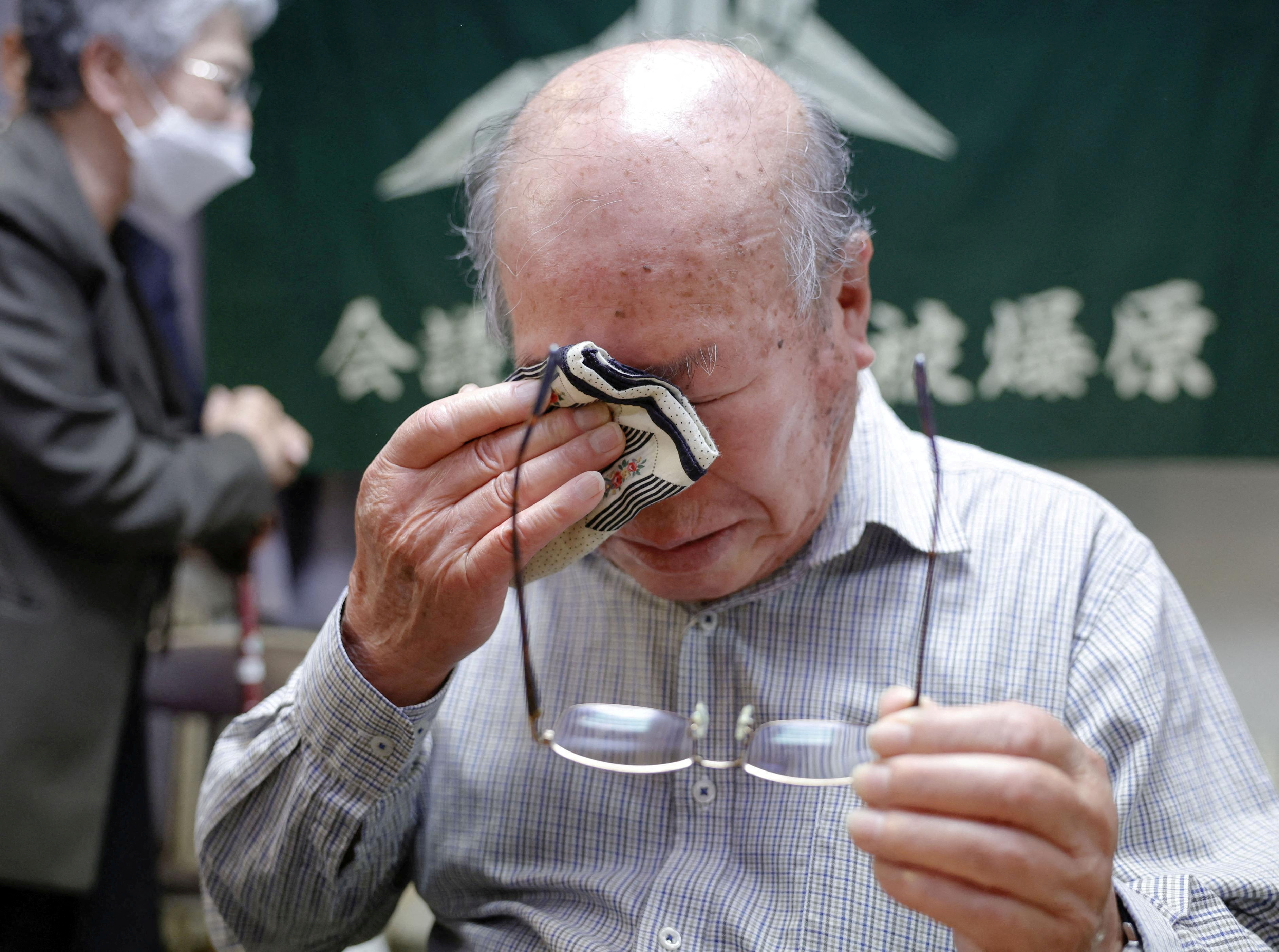


The Japanese organization, Nihon Hidankyo, has been awarded the 2024 Nobel Peace Prize for their efforts in raising awareness about the catastrophic consequences of nuclear weapons and their role in establishing a global movement for nuclear disarmament. The organization consists of survivors, known as Hibakusha, who experienced first-hand the devastation of the 1945 atom bombings in Hiroshima and Nagasaki. The decision by the United States to drop the bombs has been heavily criticized, but it also sparked a race for nuclear weapons among major powers, making the Hibakusha's efforts even more crucial in achieving a world free of nuclear weapons.
2024 Nobel Peace Prize: Nihon Hidankyo Recognized for Anti-Nuclear Advocacy
Background
The Japanese organization Nihon Hidankyo, founded in 1956, is a collective of survivors, known as Hibakusha, who endured the horrors of the atomic bombings of Hiroshima and Nagasaki in 1945. The bombings, carried out by the United States, resulted in the immediate deaths of hundreds of thousands of people, while many others suffered long-term health effects from exposure to radiation.
Award Recognition
In 2024, the Norwegian Nobel Committee awarded Nihon Hidankyo the Nobel Peace Prize for their tireless efforts in raising awareness about the catastrophic consequences of nuclear weapons and actively advocating for nuclear disarmament. The committee praised the organization's role in establishing a global movement against the proliferation and use of nuclear weapons.
Key Contributions
Throughout its history, Nihon Hidankyo has made significant contributions to the cause of nuclear abolition:
Top 5 FAQs
1. Why was the US criticized for dropping atomic bombs?
The bombings of Hiroshima and Nagasaki were heavily criticized for their civilian casualties and the indiscriminate nature of the attack. Critics argued that the use of nuclear weapons was disproportionate and unnecessary.
2. What is the role of the Hibakusha in the anti-nuclear movement?
Hibakusha are considered vital witnesses to the consequences of nuclear weapons. Their firsthand experiences provide a powerful argument against the use and proliferation of these weapons.
3. How has Nihon Hidankyo contributed to nuclear disarmament efforts?
Nihon Hidankyo has played a crucial role in building a global movement against nuclear weapons. Through its advocacy, lobbying, and grassroots mobilization, the organization has helped raise awareness and pressure governments to take action.
4. What is the significance of the 2024 Nobel Peace Prize?
The award to Nihon Hidankyo highlights the urgent need to eliminate nuclear weapons. It recognizes the organization's decades-long commitment to peace and its vital role in shaping a nuclear-free future.
5. What can I do to support the anti-nuclear movement?
Individuals can support the anti-nuclear movement by educating themselves about the consequences of nuclear weapons, participating in protests or campaigns, and contacting their political representatives to advocate for nuclear abolition.

In preparation for a major tri-service military drill, India has issued Notices to Airmen (NOTAM) for the entire northeastern region that borders China, Bhutan, Myanmar, and Bangladesh. The first set of exercises will commence in November and continue through January, signaling enhanced operational readiness for the Indian Air Force (IAF). This move is significant as the Northeast remains a sensitive theater, making up the boundary with four countries, including China. The upcoming IAF exercises aim to strengthen India's air dominance, effectively preparing for any potential challenges along the western frontier with Pakistan.

India will conduct a 10-day military exercise in Rajasthan and Gujarat involving the Army, Air Force, and Navy to showcase its operational readiness following Operation Sindoor earlier this year. The exercise, announced through a NOTAM, features advanced military technologies and emphasises the integration of speed, firepower, and precision in desert warfare conditions. It comes amidst heightened tensions with Pakistan and a renewed focus on maintaining military readiness along the border.

Jammu and Kashmir police have filed an FIR against a group of Christian missionaries in Kathua district for allegedly attempting religious conversions through financial incentives. This comes after a video surfaced online showing the missionaries being attacked and their vehicle vandalized by villagers. The incident has sparked outrage and protests from local Hindu groups, demanding action against the accused missionaries. One accused, Ravindra Singh Thela, has been arrested while the main accused, Vivek Soni, is still at large. The police have also suspended eight personnel for failing to stop the attack.

US Vice President JD Vance, who converted to Catholicism in 2019, has revealed that he hopes his Hindu-raised wife, Usha Vance, will eventually embrace Christianity. However, he clarifies that their interfaith marriage is built on mutual respect and understanding, and that Usha has complete freedom of choice in matters of faith. The couple has found a balanced way to manage their interfaith household, with their children attending a Christian school and given the choice to be baptized.

US President Donald Trump has expressed optimism about reaching a trade deal with China "pretty soon" after a meeting with Chinese President Xi Jinping in South Korea. In addition to announcing lower tariffs on Chinese imports, Trump also stated that the issue over US access to rare earths has been resolved. However, there has been no official response from Beijing and the final decision on the sale of Chinese-owned TikTok's US operations is still pending. Analysts see these developments as a breakthrough in the ongoing trade tensions between the two countries. Our correspondents provide insight on the discussions between the two leaders and speculate on why Xi may have felt confident walking into the meeting.

At the Asia-Pacific Economic Cooperation (APEC) Summit in South Korea, Chinese President Xi Jinping and US President Donald Trump met for their first in-person talks in several years. Despite past frictions, Xi called for closer cooperation between the two largest economies in the world, emphasizing the importance of being "partners and friends." Acknowledging Trump's peace efforts in the Middle East, Xi commended his contributions and praised him as a "tough negotiator." Trump also expressed optimism for a productive discussion on trade and global security.

In a historic event, Prime Minister Shri Narendra Modi addressed the Global Maritime Leaders Conclave and chaired the Global Maritime CEO Forum at India Maritime Week 2025 in Mumbai, welcoming participants from over 85 countries. With major shipping giants, startups, policymakers, and innovators in attendance, the summit showcased India's advancements in the maritime sector, such as the replacement of outdated colonial laws with modern ones and the recognition of large ships as infrastructure assets. Amidst global tensions, India stands as a symbol of strategic autonomy and inclusive growth, ready to take on a leading role in the world's rough seas.

Indian Prime Minister Narendra Modi has declared that the next generation of Goods and Services Tax (GST) reforms will begin on the first day of the Navratri festival. This major economic overhaul aims to streamline the current GST system and support businesses, especially small and medium enterprises. In other news, the National Human Rights Commission (NHRC) and Ministry of External Affairs (MEA) are collaborating to organize a six-day program in New Delhi to strengthen executive capacity for International Technical and Economic Cooperation (ITEC). Lastly, the upcoming BIRC 2025 conference will take place at the Bharat Mandapam in New Delhi.

Indian Prime Minister Narendra Modi is set to address the Global Maritime CEO Forum and Maritime Leaders Conclave at India Maritime Week (IMW) 2025 in Mumbai on Wednesday. The event will bring together global maritime leaders, investors, policymakers, and innovators to discuss sustainable growth and inclusive blue economy strategies, showcasing India's efforts towards becoming a leading maritime power. With the theme 'Uniting Oceans, One Maritime Vision' and participation from over 85 countries, the event will highlight India's commitment towards maritime sustainability and climate responsibility.

Cyclone Montha has intensified into a 'severe' cyclonic storm and is expected to make landfall in Andhra Pradesh this evening. The storm, which may cross the coast near the Kakinada area, is likely to bring heavy rainfall and strong winds to several districts in Andhra Pradesh. Meanwhile, the Odisha government has evacuated people from vulnerable areas and issued warnings for heavy rainfall in several districts. Commuters in the Waltair region have also been affected as train services have been cancelled, diverted, or terminated.